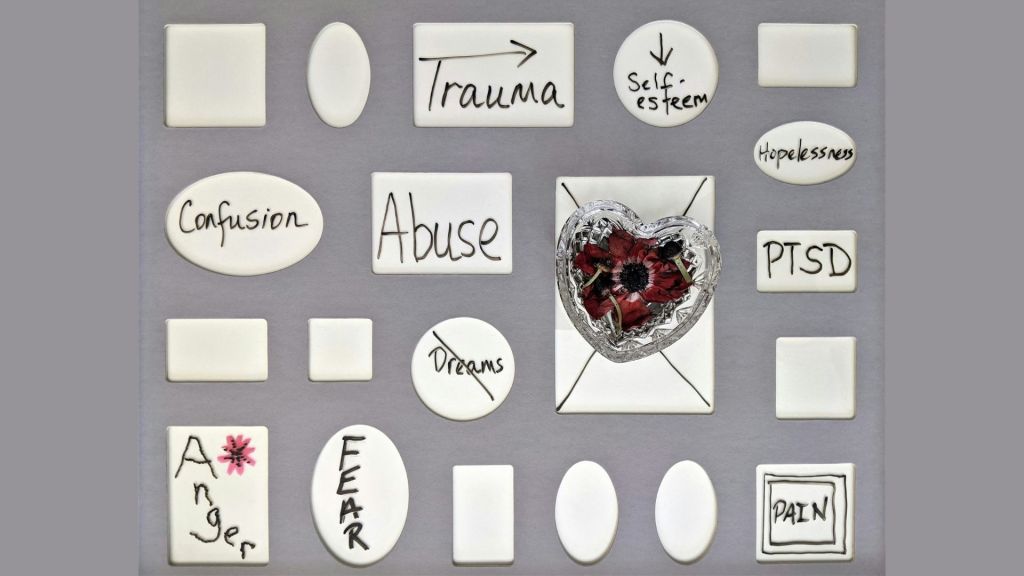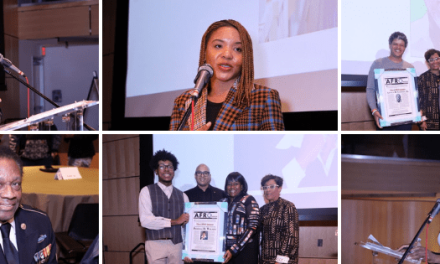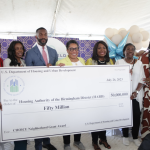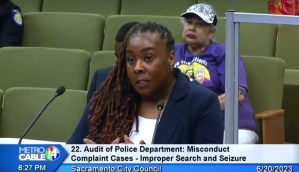By Mackenzie Williams and Madeline Seck
AFRO Interns
mwilliams@afro.com
mseck@afro.com
Short for post-traumatic stress disorder, PTSD is defined as a mental health diagnosis “that some people develop after experiencing or witnessing a life-threatening or traumatic event,” according to the National Center for PTSD.

Credit: Unsplash / Susan Wilkinson
Dr. Katina Kennedy, a dual-certified family and psychiatric nurse practitioner, spoke with the AFRO about her own experiences with PTSD and the factors that exacerbate the disorder.
“I was robbed when I was in high school gunpoint. I have a bit of PTSD when I go to certain places like a convenience store. My heart rate starts to increase. I get nervous because it reminds me of that traumatic event,” Dr. Kennedy said.
According to the National Institute of Mental Health, traumatic experiences can occur for military veterans or as a result of assault or abuse of any kind. The loss of a loved one, natural disasters and more can trigger the disorder, which is highlighted each June. PTSD can be diagnosed when an individual suffers from recurring physical and mental symptoms, such as an increase in negative thoughts and emotions. Many who suffer from PTSD have trouble because they often relive the traumatic event. The lack of sleep and decrease in appetite that can result from PTSD can alter an individual’s day-to-day lifestyle.
Dr. Kennedy’s passion today for helping others focuses on primary care, gynecology, and sexual, mental, teen and women’s health.
“Out of the 100 percent of my patients that come to me, about 70 percent have experienced some type of trauma,” she said.
In her work, she has found that African Americans experience trauma at a higher rate when compared to other races. Factors that increase Black trauma are “cultural,” said Dr. Kennedy, adding that burdens tied to socioeconomic status and sexual assaults occur more readily in the Black community.
Terrill Taylor, Ph.D, an assistant professor in the Department of Psychology at The University of Maryland, spoke directly to PTSD in the Black community. His research, aimed at systemic injustices in America, focuses on historical mistreatment, discrimination and oppression which can lead to racial trauma.
According to the National Center for PTSD, racial trauma refers to the “emotional impact of stress related to racism, racial discrimination, and race-related stressors. People can experience racial trauma from something that happens directly to them or from seeing others mistreated because of their race.”
Taylor points out that the experiences African Americans have with racial trauma are different from the textbook definition of PTSD. African American trauma can include dealing with the magnitude of historical losses, such as losing connection to heritage and ancestry as a result of chattel slavery.
Trauma can look different among various marginalized groups. When understanding the different experiences within the Black community, intersectionality— a term for multiple overlapping identities, such as gender, race and sexual orientation—can play a role in the trauma experienced and how it’s processed.
For example, Taylor explained that “toxic masculinity,” along with “minimization and stigma connected to the male experience being tough and strong” leads men to “resort to forms of heightened emotions, which could be a foundation of trauma that has been unresolved.”
Individuals often question if the discrimination they experience can cause trauma. “That can lead to minimizing an individual’s experiences because they perceive them as a normal part of reality because they happen so often,” he said.
According to the U.S. Department of Veteran Affairs, “there are many similarities between PTSD symptoms and symptoms related to the emotional impacts of racial trauma. After experiencing racial discrimination, people may have unwanted memories and may avoid thoughts, feelings and reminders of racial trauma. In addition, racial trauma can lead to negative thoughts about oneself, others, and the world, and contribute to negative moods.”
“If you or a loved one are experiencing any type of trauma, don’t keep it to yourself. Tell someone, let them know you need help, If you are feeling suicidal call 911, call or text the suicide hotline; 888,” advises Dr. Kennedy.
If you or a loved one is experiencing signs and symptoms of PTSD, help can be found with the following organizations:
- The Gavin Farrell Foundation is a non-profit focused on increasing affordable PTSD treatment and training in evidence-based research from licensed clinicians.
- The Open Path Collective is a non-profit organization solely dedicated to helping those who lack or have no health insurance for counseling services to people of all races, creeds, and genders.
- The Black Girl Doctor is a therapy service tailored for and prioritizes mental health and wellness for Black women. New clients get their first consultation for free.
- Black Men Heal is a non-profit, dedicated to providing mental health treatment, education and resources to men of color.
- The National Center for PTSD at 877-SAMHSA-7 (726-4727).
The post A call to action: Addressing Black trauma during PTSD Awareness Month appeared first on AFRO American Newspapers.











